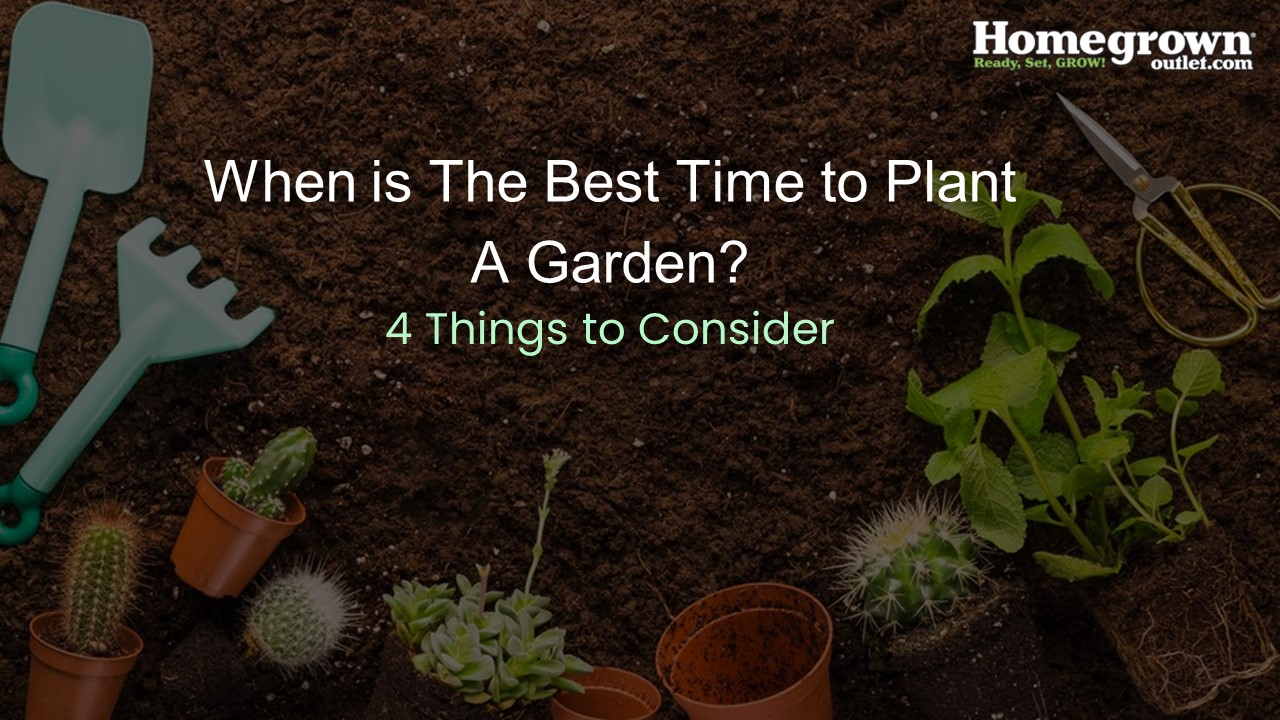When is The Best Time to Plant A Garden? - PowerPoint PPT Presentation
Title:
When is The Best Time to Plant A Garden?
Description:
Timing is crucial for a thriving garden. This presentation delves into the best times to plant a garden, considering factors like climate and frost dates. Learn how strategic planning can maximize your garden's potential for a bountiful harvest. – PowerPoint PPT presentation
Number of Views:1
Title: When is The Best Time to Plant A Garden?
1
When is The Best Time to Plant A Garden?
4 Things to Consider
2
Introduction
Welcome to our presentation on when to plant
garden. Gardening is not just a hobby it's a
science. One of the key factors in successful
gardening is knowing when to plant. In this
presentation, we will explore the different
seasons and factors that influence the best time
to start your garden, ensuring maximum yield and
healthy growth.
3
4 Things to Consider When Planting Your Garden
4
Location and Sunlight
- Choose a spot for your garden that receives
adequate sunlight based on the types of plants
you want to grow. - Most vegetables and flowers require at least 6
hours of direct sunlight daily. - Consider factors such as shade from nearby
buildings or trees that could affect the sun your
garden receives throughout the day.
5
Soil Quality and Drainage
- Evaluate your soil quality and drainage. Amend
with compost or fertilizer as needed for
nutrients. - Proper drainage is provided to control
waterlogging, which can cause root rot. - Raised beds or organic matter can help improve
drainage.
6
Plant Selection and Spacing
- Select plants served to your climate and growing
needs. - Consider temperature, humidity, and frost dates.
- Follow spacing guidelines to avoid overcrowding,
hindering growth, and nutrient competition.
7
Watering and Maintenance
- Establish a watering schedule based on plant
needs, adjusting for weather and soil moisture. - Water profoundly, but avoid overwatering.
- Monitor for pests and diseases, using organic
pesticides or crop rotation as needed. - Regular weeding and mulching conserve moisture
and suppress weeds.
8
Seasonal Planting Guide
9
Seasonal Planting
Winter
Fall
Summber
seasons
Spring
- Eggplant
- Peppers
- Mint
- Onions
- Potatoes
- Squash
- Tomatoes
- Beets
- Carrots
- Garlic
- Parsnips
- Radishes
- Turnips
- Eggplant
- Peppers
- Tomato
- Asparagus
- Broccoli
- Cabbage
- Carrots
- Cauliflower
- Lettuce
- Onions
What to Plant
10
Benefits of Seasonal Planting
1
2
3
Optimal Growth
Resource Efficiency
Flavor and Nutrition
Plants thrive in their natural seasons, yielding
better growth.
Less need for artificial inputs like heating and
watering conserves resources.
Fresher, tastier produce with higher nutrient
levels.
4
5
6
Soil Health
Pest Management
Biodiversity
Planting in season can reduce pest and disease
pressures.
Seasonal rotation improves soil fertility and
structure.
Supports diverse plant species and wildlife.
11
FAQs
Q. What month should you start a garden?
The best month to start a garden varies by region
and plant type. Generally, Spring is ideal when
the soil warms up, and frost risk diminishes, but
it depends on your local climate and plant
preferences.
Q. What is the best season to plant a garden?
Spring and fall are generally the best seasons
for planting, offering optimal conditions for
seed germination and root development. However,
the ideal season varies based on your local
climate and plant selection.
Q. What happens if you plant your garden too
early?
Planting too early risks frost damage, poor
germination, and stunted growth due to cold soil
temperatures. It also increases susceptibility to
diseases and pests. It's essential to wait until
the soil warms up and frost risk decreases before
planting.
12
Thank You
(518) 782-9365?
info_at_homegrownoutlet.com?
homegrownoutlet.com?































